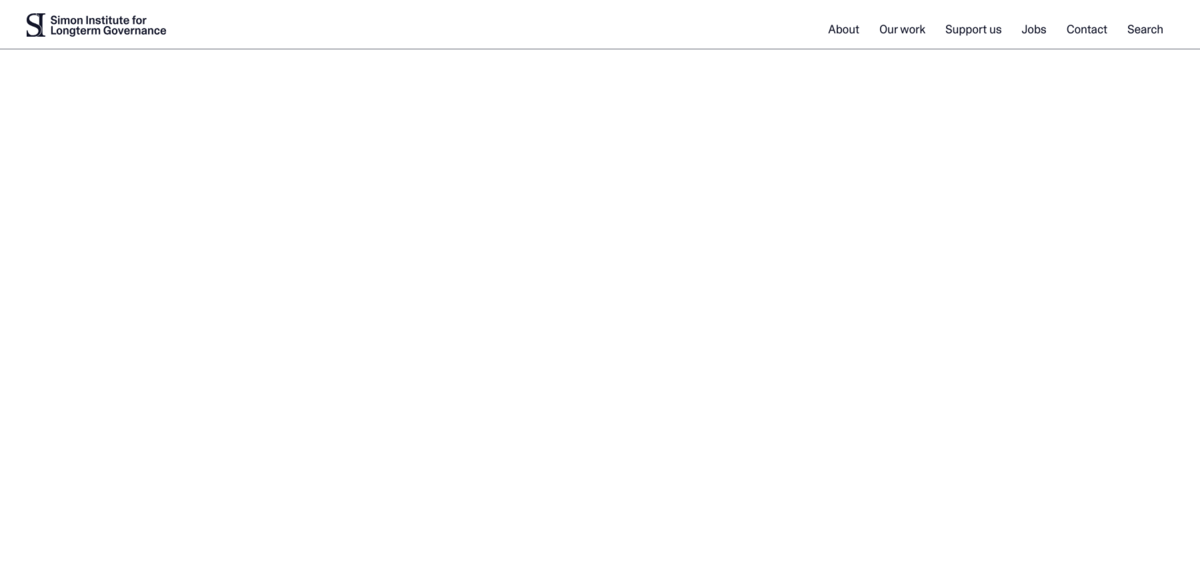What is the Simon Institute for Longterm Governance?
The Simon Institute for Longterm Governance (SI) is a think tank based in Geneva, Switzerland, dedicated to supporting policymakers in shaping a flourishing future. It focuses on fostering international cooperation to govern transformative technologies—those powerful innovations that hold incredible promise but also come with serious risks. The Institute’s work centers on thoughtful governance, aiming to steer these technologies toward outcomes that benefit everyone.
Main Benefits and Key Facts
Here’s a quick snapshot of what makes the Simon Institute stand out:
- Founded in 2021 by co-CEOs Max and Konrad to strengthen multilateral capacity against global catastrophic risks.
- Specializes in frontier AI diplomacy, conducting research and facilitating dialogue between technical experts and policymakers.
- Has delivered dozens of briefings for diplomats in Geneva and New York on AI’s opportunities, risks, and governance solutions.
- Published extensively on international AI governance and advised hundreds of diplomats negotiating landmark multilateral agreements.
- Operates as a registered Swiss non-profit, maintaining independence from political parties and relying on private and philanthropic donors.
Vision: A World United by Technology
The Simon Institute envisions a future where societies come together to harness technology for shared and lasting benefit. It’s a hopeful outlook—believing in human ingenuity and the power of technology to create a world where everyone can thrive. But there’s also a note of caution: without good governance, powerful technologies could cause large-scale harm. So, the Institute works to enhance international cooperation, aiming for sustained flourishing across generations.
Mission: Bridging Policy and Technology
At its core, SI’s mission is about supporting policymakers, diplomats, and technical experts to foster international cooperation on governing transformative technologies. It translates complex technical developments into actionable policy advice and creates spaces for dialogue among diverse actors. The focus is especially sharp on frontier artificial intelligence, ensuring it’s developed and deployed responsibly—because the stakes couldn’t be higher.
History and Evolution
Since its founding in 2021, the Simon Institute has been deeply involved in global efforts to reduce catastrophic risks from emerging technologies. Early on, it contributed to key intergovernmental processes, pushed for the representation of future generations in multilateral agendas, and delivered UN reports on existential risks tied to rapid technological change and large-scale hazards. In 2023, the Institute zoomed in on AI governance, recognizing AI as one of the most consequential technologies of our time. Since then, it’s been busy briefing diplomats, publishing research, and advising on landmark agreements.
Impact on Sustainable Development Goals (SDGs)
- SDG 9: Industry, Innovation, and Infrastructure – promoting responsible innovation and infrastructure development.
- SDG 16: Peace, Justice, and Strong Institutions – strengthening international cooperation and governance frameworks.
- SDG 17: Partnerships for the Goals – facilitating collaboration between governments, technical communities, and civil society.
- SDG 4: Quality Education – educating diplomats and civil servants on frontier AI and governance.
- SDG 10: Reduced Inequalities – aiming for equitable benefits from transformative technologies.
Transparency and Independence
The Simon Institute operates with full transparency. It’s a registered Swiss non-profit, independent of any political party affiliations. Funding comes from a variety of private and philanthropic donors who respect the Institute’s autonomy in how resources are allocated. This independence is crucial—it ensures that SI can focus purely on its mission to support thoughtful, effective governance of transformative technologies without external pressures.


















